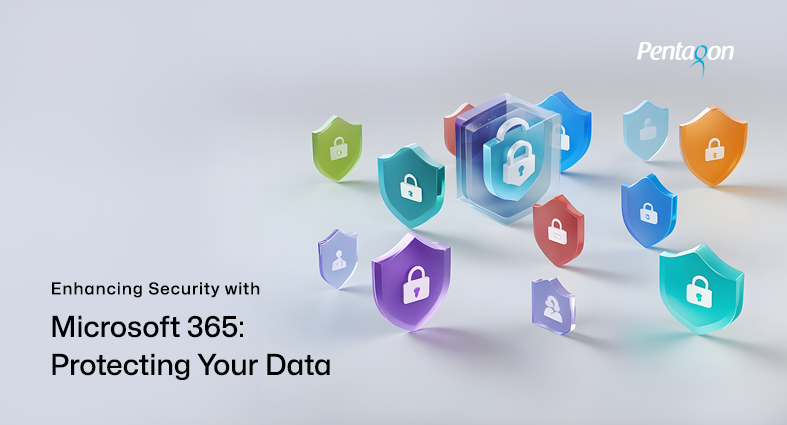Cyber threats loom as a pervasive, ever-present menace in the realm of ecommerce, casting a shadow over the seamless digital landscape. As online businesses continue to flourish, they are becoming increasingly attractive targets for cybercriminals seeking to exploit vulnerabilities and compromise the trust of customers. In this digital age, safeguarding your ecommerce business from these insidious threats is not just a choice; it’s an imperative. This comprehensive guide is your roadmap to fortify your ecommerce venture against cyber adversaries, ensuring that your online presence remains resilient and trustworthy. Delving into the intricate world of cyber threats and security measures, we will equip you with the knowledge, strategies, and insights needed to protect your ecommerce business effectively. From understanding the evolving threat landscape to implementing cutting-edge security practices, join us on this journey to secure the future of your online enterprise.
Understanding Cyber Threats in Ecommerce
To fortify your ecommerce business against cyber threats, it’s crucial to grasp the landscape and challenges. Ecommerce operates in a dynamic digital ecosystem where the convenience of online shopping coexists with lurking security vulnerabilities. These challenges encompass a range of issues, from data breaches to financial fraud, making it imperative to understand the multifaceted nature of cyber threats in this environment. The ecommerce landscape is characterized by rapid growth, diverse consumer bases, and intricate technological infrastructures. The expansive reach of ecommerce means that businesses handle vast amounts of sensitive customer data, which can become a target for malicious actors. Furthermore, the continuous evolution of technology and consumer expectations presents a shifting landscape of security challenges, making it vital for ecommerce enterprises to adapt and fortify their defenses continually.
Types of Cyber Threats in Ecommerce
Ecommerce businesses face an array of menacing cyber threats. These encompass various attack vectors that cybercriminals exploit to compromise data, disrupt operations, or extract financial gain. Understanding these threat categories is pivotal to implementing targeted security measures that can mitigate risks effectively. Malware, often insidiously injected into websites, can compromise customer data and disrupt operations. Phishing attacks, camouflaged as legitimate communications, aim to deceive customers and steal sensitive information. Ransomware, a growing menace, can hold your data hostage, demanding hefty ransoms for its release. Additionally, Distributed Denial of Service (DDoS) attacks can cripple your website’s availability, leading to revenue loss and customer frustration. Understanding these threats is the first step in fortifying your ecommerce fortress against them.
Malware and Ecommerce Security
Malware, a portmanteau of malicious software, encompasses a wide range of threats such as viruses, Trojans, and spyware. In the ecommerce realm, malware can infiltrate systems, infect websites, and steal sensitive customer information. Combatting malware requires robust antivirus programs, regular system scans, and a proactive approach to software security updates.
Phishing Attacks
Phishing attacks involve deceptive tactics to trick individuals into divulging sensitive information, often through seemingly legitimate emails or websites. In ecommerce, these attacks pose a significant threat as they can undermine customer trust and tarnish a brand’s reputation. Implementing email authentication protocols, user training, and thorough verification processes can help protect customers and preserve brand integrity.
Ransomware
Ransomware is a particularly insidious threat where cybercriminals encrypt essential data, demanding a ransom for its release. The ecommerce sector has witnessed a growing prevalence of such attacks. Guarding against ransomware involves robust data backup strategies, employee awareness training, and security measures that prevent unauthorized access to critical systems.
DDoS Attacks
Distributed Denial of Service (DDoS) attacks aim to overwhelm a website’s servers, rendering it inaccessible to users. Ecommerce businesses depend on website availability for revenue generation, making DDoS attacks a serious concern. Shielding against DDoS involves deploying traffic monitoring tools, content delivery networks (CDNs), and scalable hosting solutions to ensure uninterrupted service.
The Importance of Security Awareness
Security awareness is the linchpin of a resilient cybersecurity posture in ecommerce. It encompasses educating employees and users about potential threats, safe online practices, and recognizing suspicious activities. A well-informed workforce and customer base can serve as an essential line of defense, helping to identify and thwart threats before they escalate, thereby safeguarding the ecommerce business from potential security breaches and reputational damage.
Building a Secure Ecommerce Foundation
Building a secure foundation involves a comprehensive approach that goes beyond mere technology implementation. It encompasses the development of a holistic security mindset within your organization. From the earliest stages of planning and design, your ecommerce business should prioritize security. This involves considering the architecture of your website, the technology stack you choose, and the processes in place to monitor and respond to security threats. A secure foundation ensures that your online platform is resilient against potential threats, bolsters customer trust, and safeguards your brand reputation in an environment where trust is paramount for success.
Ecommerce Development Services
Ecommerce Development Services are not just about creating an aesthetically pleasing website; they are about fortifying your digital fortress. Ecommerce development professionals are well-versed in the intricacies of secure coding practices, secure payment gateway integration, and overall website security. They bring a wealth of experience to the table, ensuring that your ecommerce platform is not only user-friendly but also resistant to cyber threats. Their expertise is instrumental in creating a seamless, secure, and efficient online shopping experience for your customers.
Semantic Keywords and Ecommerce Security
Semantic keywords facilitate better communication with search engines and assist in delivering relevant, secure results to users. Beyond their role in SEO and content optimization, semantic keywords have a profound impact on how your website interacts with search engines and, ultimately, with users. By aligning your content with semantic keywords related to security, you improve your site’s visibility in search results. More importantly, you demonstrate a commitment to safeguarding customer information, which can instill trust in potential customers.
Robust Authentication and Access Control
Robust authentication and access control measures ensure that only authorized personnel, whether they are employees or customers, gain access to sensitive areas of your website. Implementing multifactor authentication, strong password policies, and role-based access control can thwart unauthorized entry attempts and protect vital assets. These measures create a layered defense that strengthens your overall security posture and minimizes the risk of unauthorized access or data breaches.
Data Encryption
Data encryption acts as an impenetrable shield, safeguarding customer information from prying eyes. This security measure involves converting sensitive data into unreadable code that can only be deciphered by those with the proper encryption keys. By encrypting sensitive data both in transit and at rest, you guarantee that even if a breach occurs, the stolen data remains unintelligible to cyber criminals. This crucial layer of security is indispensable in maintaining customer trust and compliance with data protection regulations.
Regular Software Updates and Patch Management
Regular software updates and patch management are your frontline defenses against emerging threats. Software vendors continually release updates and patches to address known vulnerabilities and security weaknesses. By keeping your ecommerce platform and associated software up to date, you ensure that these known vulnerabilities are promptly addressed, reducing the risk of exploitation by cyber attackers. This practice not only enhances the security of your ecommerce business but also contributes to providing a secure shopping environment for your customers, which is essential for building and maintaining trust in the digital marketplace.
Protecting Customer Data
Protecting Customer Data involves meticulous adherence to regulatory standards and robust security practices. GDPR Compliance ensures that your data handling aligns with European Union regulations, assuring customers that their personal information is treated with utmost care. The Payment Card Industry Data Security Standard (PCI DSS) imposes stringent requirements for secure credit card transactions, shielding both your customers and your reputation. A secure checkout process is not just about convenience but also about securing payment data during online transactions. Managing customer accounts safely means implementing strong authentication measures and monitoring for any suspicious activity, ensuring that your customers’ accounts remain protected from unauthorized access.
GDPR Compliance
GDPR Compliance, a crucial facet of ecommerce, emphasizes the significance of data protection. Complying with the General Data Protection Regulation is not merely a legal obligation; it is a commitment to safeguarding the privacy of your customers. This regulation necessitates transparent data handling, explicit consent, and robust security measures. It empowers customers with control over their personal data and holds businesses accountable for its secure management, fostering trust and loyalty.
Payment Card Industry Data Security Standard
The Payment Card Industry Data Security Standard (PCI DSS) stands as a pillar of ecommerce security. It mandates stringent security protocols for businesses that handle credit card transactions. By adhering to PCI DSS, you ensure that sensitive payment data is fortified against theft or misuse. Compliance is not just a legal requirement but a testament to your commitment to preserving the financial well-being of your customers.
Secure Checkout Processes
Secure checkout isn’t just about efficiency; it’s about shielding sensitive payment data from prying eyes. Implementing secure checkout processes involves encryption, secure socket layer (SSL) certificates, and fraud detection mechanisms. Customers need the assurance that their financial information is transmitted and stored safely, and a secure checkout process provides that peace of mind.
Managing Customer Accounts Safely
The management of customer accounts entails a profound responsibility. Implementing robust security measures, such as multi-factor authentication and continuous monitoring, is essential to thwart unauthorized access and protect customer information. Managing customer accounts safely doesn’t just preserve the integrity of your ecommerce business; it also fosters trust and confidence among your clientele, strengthening the long-term relationship between your business and its customers.
Cybersecurity Best Practices
Safeguarding your ecommerce business from cyber threats demands the implementation of a comprehensive set of cybersecurity best practices. These practices serve as the bedrock upon which your digital fortress is built. They encompass various facets, beginning with robust employee training and awareness programs. These initiatives ensure that every member of your team is well-versed in recognizing and responding to potential security breaches, effectively turning your employees into vigilant guardians of your ecommerce security.
Employee Training and Awareness
Your workforce is not just a vital asset; they are also the first line of defense against cyber threats. Employee training and awareness programs are instrumental in arming your staff with the knowledge and skills necessary to identify, report, and mitigate security risks. By fostering a culture of heightened awareness, you empower each team member to become a proactive contributor to your ecommerce security efforts. Regular training sessions, phishing awareness programs, and clear security protocols are essential components of this crucial practice.
Incident Response and Disaster Recovery Plans
Despite your best efforts, security incidents may occur. This is where having a well-defined incident response and disaster recovery plan becomes indispensable. These plans outline a structured approach for dealing with security breaches, guiding your team in containing the incident, assessing the extent of the damage, and taking appropriate remedial action. Simultaneously, disaster recovery plans ensure that, in the face of a catastrophic event, your critical business functions can be swiftly restored, minimizing downtime and potential financial losses.
Third-party Security Audits
Ensuring the integrity of your ecommerce security measures often requires an external perspective. Third-party security audits offer an unbiased evaluation of your security protocols. These independent assessments identify potential vulnerabilities or areas in need of improvement that might not be evident through internal assessments. By subjecting your security infrastructure to external scrutiny, you gain an extra layer of assurance, validating that your security practices align with industry standards and best practices.
Monitoring and Detection Systems
Proactive vigilance is key to effective cybersecurity. Monitoring and detection systems serve as the sentinels of your ecommerce security, continuously scanning for suspicious activities and potential threats. When unusual behavior is detected, these systems trigger alerts, enabling rapid response to mitigate the threat before it escalates. This real-time monitoring capability is crucial for identifying and neutralizing emerging threats in their infancy, thereby preventing potential breaches from causing significant damage.
Continual Security Improvement
Cyber threats are relentless and ever-evolving, necessitating a dynamic and continually improving security posture. Continual security improvement involves an ongoing commitment to staying ahead of emerging threats. It includes regularly updating security protocols, integrating cutting-edge technologies, and adapting your defenses to the ever-changing threat landscape. By embracing a culture of continual improvement, your ecommerce business remains resilient and capable of adapting to new challenges as they arise, ensuring long-term security and success.
Emerging Threats and Future Trends
This section explains the emerging threats and future trends of the rapidly evolving cybersecurity arena. We explore the transformative role of Artificial Intelligence (AI) and Machine Learning (ML) in enhancing cybersecurity measures, the promise of blockchain technology in fortifying ecommerce security, and the need to prepare for the inevitable challenges presented by quantum computing. By proactively addressing these emerging trends and threats, you can position your ecommerce business on the frontline of defense against the ever-changing face of cyber risk.
Artificial Intelligence and Machine Learning
Artificial Intelligence (AI) and Machine Learning (ML) are ushering in a new era of cybersecurity. These technologies are revolutionizing threat detection and response by identifying patterns and anomalies at speeds impossible for humans. By harnessing AI and ML, businesses can proactively combat cyber threats, offering real-time protection. This section explores the integration of AI and ML into cybersecurity strategies, highlighting their potential to strengthen your ecommerce business’s defenses and adapt to the dynamic nature of cyber threats.
The Role of Blockchain in Ecommerce Security
Blockchain, renowned for its role in cryptocurrencies, is also a game-changer in ecommerce security. Its decentralized ledger technology ensures transparency, immutability, and data integrity. In this section, we delve into how blockchain can be harnessed to secure transactions, supply chains, and customer data in ecommerce. By leveraging blockchain’s cryptographic principles and consensus mechanisms, businesses can establish trust and mitigate risks, creating a secure environment for both customers and merchants.
Preparing for Quantum Computing Challenges
Quantum computing, while promising breakthroughs in computation, presents a formidable challenge to cybersecurity. Its immense processing power threatens traditional encryption methods. This section emphasizes the need for proactive preparation in the face of quantum computing. We discuss the vulnerabilities it exposes in current security protocols and the ongoing research into quantum-resistant encryption. By acknowledging these challenges and exploring quantum-safe alternatives, ecommerce businesses can ensure their data remains secure in the quantum era, safeguarding customer trust and sensitive information.
Conclusion
The key takeaways for ecommerce development services emphasize the critical role that professional service providers play in fortifying your online business. These experts, equipped with their expertise in cybersecurity, can be your trusted allies in the battle against cyber threats, offering tailored solutions to bolster your digital defenses. Staying ahead of cyber threats emerges as a paramount objective, underscoring the ever-evolving nature of digital risks. Continual vigilance, proactive monitoring, and adaptation to emerging threats are the linchpins of this strategy. Ultimately, ensuring a secure future for your ecommerce business encapsulates the overarching goal – to establish an environment where your customers can transact with confidence, where data is safeguarded, and where your brand’s reputation remains untarnished. Elevate your ecommerce security to the next level with our specialized ecommerce development services. Our team of experts is ready to tailor solutions that safeguard your business from cyber threats while optimizing performance and user experience. Don’t wait until the next security breach – secure your ecommerce future today with our trusted services.
services
Feel free to send us a message.
Please, share your thoughts, and let's chat over a cup of tea.



















